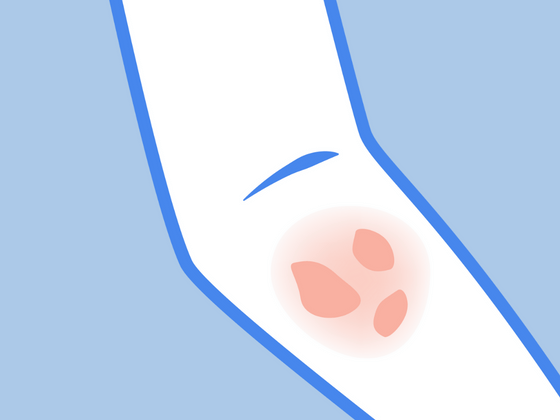Eczema, especially atopic dermatitis, is a common skin condition characterized by dryness, itching, and inflammation. Finding the right products to manage these symptoms is essential for maintaining healthy skin. Grapeseed oil is gaining recognition for its potential benefits in eczema treatment.
In this blog, we will explore:
-
The role of grapeseed oil in improving eczema symptoms and skin barrier function.
-
The benefits of grapeseed oil, including its anti-inflammatory and antioxidant properties.
-
How to incorporate grapeseed oil into your skincare routine effectively.
Read on to discover how grapeseed oil can enhance your eczema treatment and support overall skin health.
Understanding Grapeseed Oil for Eczema
Grapeseed oil, extracted from the seeds of grapes, is a versatile and beneficial oil for various skin conditions, including eczema. Its rich composition of essential fatty acids and antioxidants makes it a valuable addition to any skincare routine.
Skin Barrier Repair
Grapeseed oil is known for its high concentration of linoleic acid, a type of omega fatty acid that plays a crucial role in maintaining and repairing the skin barrier. This helps to reduce moisture loss and protect the skin from external irritants, which is particularly beneficial for those with eczema. By enhancing the skin barrier function, grapeseed oil can help alleviate dryness and irritation associated with eczema.
Anti-Inflammatory Properties
Grapeseed oil contains powerful anti-inflammatory agents that can help soothe inflammation and redness caused by eczema. The oil’s anti-inflammatory properties can reduce swelling and discomfort, making it a helpful option for managing eczema symptoms. Additionally, its antioxidant properties, including a high concentration of vitamin E, support skin healing and protect against oxidative stress.
Moisturizing and Hydrating
Grapeseed oil is a lightweight, non-comedogenic oil that absorbs quickly into the skin, making it suitable for most skin types. Its moisturizing properties help to hydrate dry skin and prevent moisture loss. Unlike some oils that can clog pores, grapeseed oil is ideal for sensitive skin and can be used without fear of exacerbating acne or other skin issues.
Benefits of Grapeseed Oil in Skincare
Essential Fatty Acids
Grapeseed oil is rich in essential fatty acids, including linoleic and oleic acids, which are crucial for maintaining healthy skin. These fatty acids help to support skin barrier function, reduce inflammation, and promote overall skin health.
Antioxidant Properties
The high concentration of antioxidants in grapeseed oil, including vitamin E, helps protect the skin from environmental damage caused by UV radiation and air pollution. These antioxidants also support collagen production, which is vital for skin elasticity and reducing the appearance of wrinkles.
Healing and Repair
Grapeseed oil’s healing properties make it effective for soothing skin conditions and supporting wound healing. Its antimicrobial properties help to protect the skin from infections and promote faster recovery. For eczema patients, this can translate to reduced redness, itching, and inflammation.
Non-Comedogenic
Grapeseed oil is considered non-comedogenic, meaning it is unlikely to clog pores. This makes it a suitable choice for those with sensitive skin and those who are prone to acne. It provides a protective barrier without contributing to further skin issues.
Incorporating Grapeseed Oil into Your Skincare Routine
Topical Applications
To benefit from grapeseed oil’s therapeutic properties, apply it directly to affected areas of the skin. Use it as a part of your moisturizing routine to help soothe and hydrate eczema-prone skin. Conduct a patch test before applying it widely to ensure there are no adverse reactions.
Combination with Other Oils
Grapeseed oil can be combined with other natural oils, such as jojoba oil or coconut oil, to enhance its benefits. For example, mixing grapeseed oil with jojoba oil can provide additional moisturizing and soothing effects.
Choosing Cold-Pressed Varieties
For maximum benefits, choose cold-pressed grapeseed oil. Cold-pressed oils retain more of their natural nutrients and therapeutic properties compared to refined oils.
Integrating with Skincare Products
Look for skincare products that feature grapeseed oil as a key ingredient. These products can offer the combined benefits of grapeseed oil with other beneficial ingredients, enhancing your overall skincare routine.
Embrace the Benefits of Grapeseed Oil for Eczema Relief
Incorporating grapeseed oil into your eczema management routine can offer substantial relief and support for healthier skin. Enhance your skincare regimen and achieve better skin health with grapeseed oil today.








